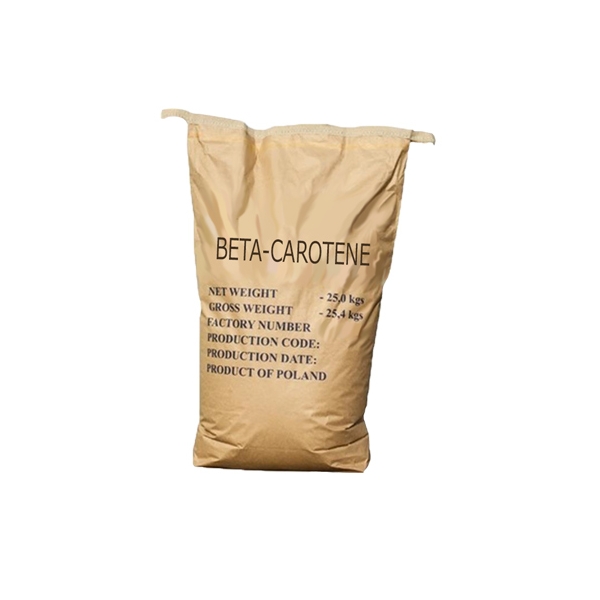Beta-carotene is a natural fat-soluble pigment belonging to the carotenoid family. It is a precursor of vitamin A and is found in many plant-based foods, as well as in supplement form.
Properties and Characteristics:
- Chemical Formula: Beta-carotene is chemically represented by the formula C₄₀H₅₆, indicating its composition of carbon and hydrogen.
- Vitamin A Precursor: Once ingested, beta-carotene can be converted into vitamin A in the body as needed, contributing to visual function, growth, development, and other physiological processes.
Applications:
Nutrition:
- Food Sources: It is found in various foods such as carrots, sweet potatoes, spinach, mangoes, apricots, and other colorful fruits and vegetables.
Health and Wellness:
- Antioxidant: Beta-carotene acts as a potent antioxidant, protecting cells from damage caused by free radicals, thereby contributing to cellular health and the prevention of various diseases.
- Immune Support: It plays a role in supporting the immune system by enhancing immune response and promoting overall health.
Cosmetics:
- Skin Care: Used in many skincare and cosmetic products for its protective and nourishing properties, contributing to healthy and radiant skin.
Safety and Precautions:
Although beta-carotene is generally considered safe when consumed from foods, excessive use of beta-carotene supplements can pose risks for certain individuals, including smokers and those at increased risk of lung cancer. It is essential to consult a healthcare professional before starting any supplementation regimen to assess individual needs and potential risks.


